The word loneliness often conjures images of someone physically alone, yet when I moved abroad to pursue my medical career, I learned that loneliness can strike even in crowded hospital wards and bustling cities. As a doctor working overseas, I found that the very environment meant to nurture my skills sometimes fostered an inner emptiness. In this post I’ll share how I handle loneliness abroad—and how other doctors working overseas might recognise it, face it, and move beyond it.
The Reality of Loneliness for Doctors Abroad
When you’re a doctor abroad, you may expect excitement, challenge, growth—and you get that. But the flip side is often loneliness. Research shows that emptiness isn’t just a passing feeling: it has real health consequences. The World Health Organization (WHO) notes that loneliness and social isolation are linked with increased risks of stroke, heart disease, depression, dementia, and premature death. World Health Organization+1
In the medical profession, this is especially relevant: a study described how “medicine is one of the loneliest professions … doctors reported levels of detachment 25% higher than respondents with bachelor’s degrees.” PMC As an expat doctor, those statistics hit close to home: I may be surrounded by colleagues and patients—but still feel disconnected.
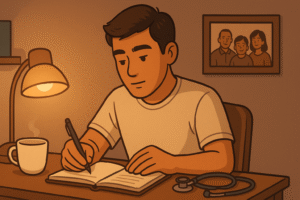
Why Loneliness Abroad Hits Differently
Cultural distance and social rhythms
Moving to a new country means navigating unfamiliar social norms, languages, and rhythms. Even though I worked in a team, I sometimes felt lonely because I couldn’t fully connect in the same way as I did at home.
Shift work, long hours, and invisible walls
As a doctor abroad, the demands are high—night shifts, on-call duty, patient loads. These create barriers to forming meaningful friendships. The irony: I was constantly in contact with people—but still felt a deep emptiness.
Professional identity versus personal need
In medicine, especially abroad, one tends to emphasise the professional role (“doctor”, “expert”, “helper”) and suppress the personal (“I’m lonely”, “I need connection”). But ignoring our own needs only deepens loneliness. The healthcare literature is now beginning to acknowledge this: doctors may not fully appreciate loneliness as a health issue. Frontiers
Recognising the Signs of Loneliness
It took me some time to realise that what I was feeling wasn’t just fatigue or homesickness—it was loneliness. Here are some signs to watch for:
-
Feeling exhausted after shifts, not just physically but emotionally, even when sleep-deprived.
-
Having less interest in socialising, even when opportunities present themselves.
-
A feeling of “I don’t belong” or “I can’t speak their language (even when I do)”.
-
Frequent homesickness or nostalgia, especially after working late or during weekends.
-
Using work or hobby as a distraction from the emptiness rather than a source of meaning.
Recognising these signs early meant I could address the loneliness rather than let it fester into burnout or depression.

How I Handle Loneliness Abroad
Over time, I developed a toolkit of strategies that helped me manage—and even transform—my emptiness abroad. Here’s what worked for me:
1. Daily connection rituals
I carved out small habits: a 10-minute video call with a family member, a voice-note exchange with a friend, a weekly virtual “coffee break” with someone back home. These rituals anchored me and reduced the gap between living abroad and feeling connected.
2. Building a local circle (however small)
I made an effort to meet at least one colleague, local nurse, or non-medical friend per month. I joined a gym class, attended a language-exchange event, and invited someone for dinner. Homesickness shrinks when you build micro-bonds.
3. Structuring my routine with anchors
I created fixed rituals: morning jog, journaling at night, exploring a new place once a month. These anchors gave me a sense of control and helped break the cycle of drifting into feeling lonely.
4. Reframing loneliness as growth
Instead of seeing emptiness as a failing, I began viewing it as a signal: “I’m in new territory, I’m growing, I need to adapt.” That reframing helped me stop resisting the loneliness and instead lean into what it was teaching me.
5. Seeking professional support when needed
Finally, I treated loneliness like any other professional risk: if I noticed signs of depression or burnout, I reached out for counselling or peer support. Given the evidence that loneliness has major health implications, this is not optional. World Health Organization
What Helped Me the Most as a Doctor Overseas
Here are the personal “wins” that really shifted my experience of feeling lonely abroad:
-
Creating a ‘support list’: a small list of people I could message when I felt lonely. The act of writing it down made me feel less isolated.
-
Blogging / journaling my journey: I set aside 15 minutes each week to reflect on the loneliness and growth I was experiencing. It gave voice to what I was feeling.
-
Volunteering / teaching locally: contributing to the local community helped me feel less like an “outsider” and more like I belonged.
-
Celebrating small local moments: I started to give myself permission to enjoy local food, sunsets, festivals. These moments offset the loneliness and reminded me I chose this journey.
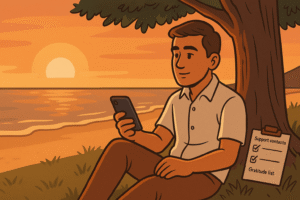
My Advice to Other Doctors Feeling Loneliness Abroad
If you’re reading this and recognising some of your own feelings of loneliness abroad, here’s what I’d say:
-
You are not alone —many doctors, nurses, healthcare professionals feel it, even if they don’t say it.
-
Don’t wait for the feeling to disappear; take one small step today—message someone, join a group, schedule a call.
-
Protect your mental health as you protect your patients. Loneliness isn’t just “sadness”—it’s a genuine health risk with consequences.
-
Share your story—you may help someone else realise they’re not the only one feeling lonely abroad.
-
Know that this phase will shift: roots will form, networks will grow, and what once felt lonely may become your “new normal”.
Final Reflection: Finding Meaning Beyond Loneliness
For a long time, I thought feeling lonely abroad meant I had made a mistake. But now I see that feeling was part of the transformation. It reminded me of what matters: connection, vulnerability, authenticity.
Working overseas as a doctor, I realised that my patients weren’t just bodies and symptoms—they were humans craving connection—and in mastering how I handle loneliness, I became a more compassionate doctor. If you’re feeling this same loneliness abroad, know this: it can be fertile ground for growth, belonging, and deeper empathy. Loneliness may be uncomfortable—but it doesn’t have to define your experience overseas.
If you’ve found yourself in the same place, I’d love to hear your story in the comments below. You don’t have to face loneliness alone.
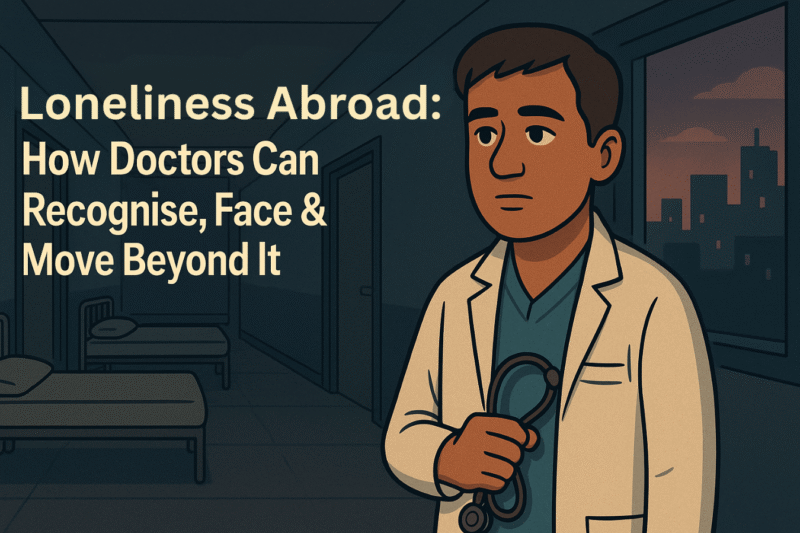

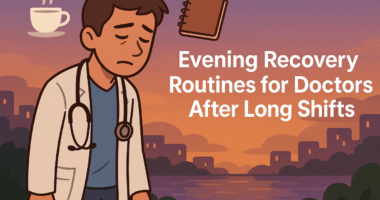
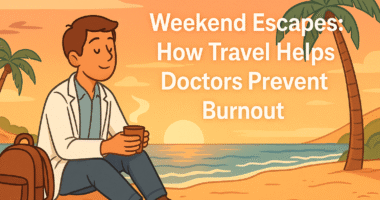

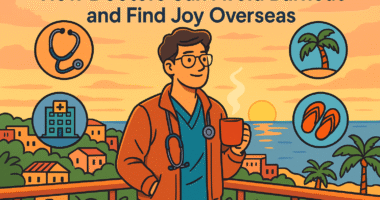


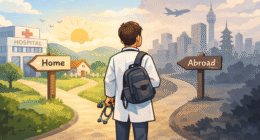

1 comment
Good morning all guys ❣️